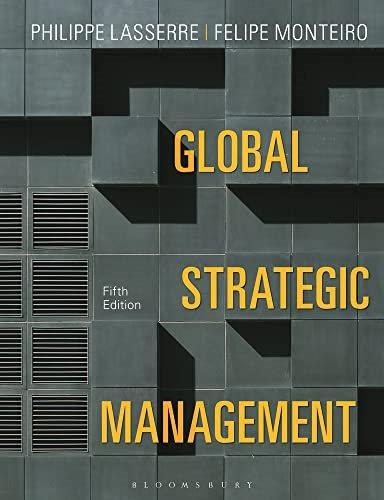Question
Wire & Co is a Perth based investment bank that offers private banking and wealth management services for high net worth individuals and their families.
Wire & Co is a Perth based investment bank that offers private banking and wealth management services for high net worth individuals and their families. Mr and Mrs O'Hara (the Claimants), whose joint net worth was then in excess of $25 million (AUD), began their relationship with Wire & Co in 2011. Their 'relationship manager' from 2011 to 2018 was a Mr Kevin Stone, after which a Mr Ray Eugene took over. Although Mr O'Hara was an astute and successful businessman, neither he nor his wife were experienced investors. So they repeatedly made it clear to the bank that they were willing to accept some risk - but not too much - provided that they were properly informed beforehand about how much risk they were taking on. In the written contract of engagement between the Claimants and Wire & Co, the bank expressly undertook to advise the Claimants in their personal capacity, including working with them to understand their "circumstances, objectives and requirements" and to formulate for them "a balanced and appropriate investment strategy". Under the terms of that contract, the bank was expressly obliged to give its advice in writing, at such times as it considered appropriate (or otherwise as agreed), to correctly describe any investment products that the bank recommended to the Claimants and to consider, before recommending any products to the Claimants, whether those products were suitable to the Claimants needs and personal circumstances. In 2017 and 2018 the Claimants invested over $8 million (AUD), on the bank's advice, in three products from the bank's new line of "Nexus" hedge fund products (the Nexus Investments). The bank classified and described these products as "wealth generation products" (its most risky investment category). The result of taking on the Nexus Investments was a to produce a significant shift towards higher risk investments in the Claimants' overall investment portfolio. The Claimants subsequently complained to the bank about the Nexus Investments, claiming that they were not suited to their needs because (i) there was no capital protection; and (ii) the investments caused the Claimants to expose an unjustifiably high proportion of their wealth to the risk of loss. They also complained that in order to persuade the Claimants to take on the Nexus Investments Mr Stone had significantly downplayed the substantial increase in their investment risk that was associated with investing in that type of investment, a type of investment which they claimed they would otherwise not have been willing to take on, and they stated that they suspected that Mr Stone had done this in order to earn for himself a large (and undisclosed) commission payment. In early 2020, in an attempt to add some more 'balance' to their portfolio the Claimants, who were now acting on the advice of Mr Eugene, invested a further $10 million (AUD) in two additional products that Mr Eugene recommended to them. These products were called "Autopilot" and "Navigator" (the BSI Investments). Unlike the Nexus Investments, the BSI Investments were classified by the bank as "wealth preservation products" (the bank's least risky investment category). The Claimants subsequently decided that they were unhappy with the BSI Investments claiming that they were also not suited to their needs, because both products were offered by the same institution (BSI Investments Ltd). The Claimants argued that Mr Eugene should have advised them against concentrating so much of their money in one institution, since their $10 million (AUD) investment meant that nearly half of their entire capital would be at risk if BSI Investments should become insolvent. In essence the Claimants were alleging that both the Nexus Investments and the BSI Investments were unsuitable for their needs because the former was 'too risky' and the latter 'too concentrated' and that, in recommending that they invest in such unsatisfactory products, the bank had been negligent and had, as a result, breached both its contractual obligations to the Claimants and the tortious 'duty of care' that it owed them. 3 The Claimants suffered significant losses in relation to both the Nexus Investments and the BSI Investments when the market dramatically declined in value, following the onset of the worldwide COVID-19 pandemic. In an attempt to recover some of these losses the Claimants issued legal proceedings against Wire & Co in late 2021, alleging both breach of contract and actionable (tortious) negligence on the part of the bank, and seeking an award of damages to compensate them for the losses they had incurred as a result of following the bank's advice in relation to both the Nexus Investments and the BSI Investments.
Q2. Quite apart from any contractual obligation that the bank may have owed to the Claimants, did the bank owe the Claimants a duty of care, breach of which could result in liability under the tort of negligence and, if they did, what was the nature and content of that duty? (5 marks)
Step by Step Solution
There are 3 Steps involved in it
Step: 1

Get Instant Access to Expert-Tailored Solutions
See step-by-step solutions with expert insights and AI powered tools for academic success
Step: 2

Step: 3

Ace Your Homework with AI
Get the answers you need in no time with our AI-driven, step-by-step assistance
Get Started


